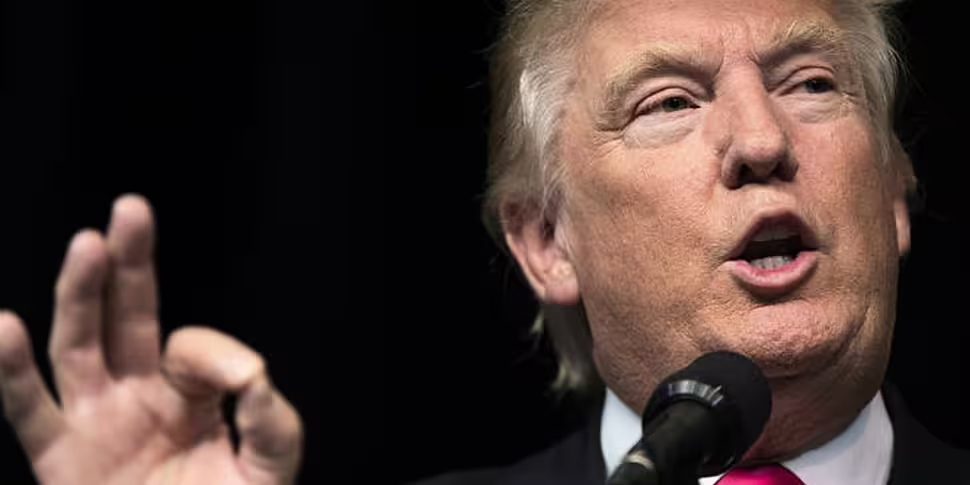There are less than 32 days to go before the United States of America takes to the polls and the financial powers-that-be both across the Atlantic and around the world should, by now, have accounted and prepared for every possible outcome (of which there are but two, unless you're a Gary Johnson or Jill Stein true believer).
As we learnt on today's Breakfast Business, however, that's not exactly the case.
Willis Sparks is the director of global macro at Eurasia Group, charged with assessing political risks and advising business leaders and investors accordingly, and the way he tells it, a Hillary Clinton victory is nailed on. Nothing to see here, folks...
Calling the "risk" of a Donald Trump presidency "overstated", he outlined his evidence with reference to how America's voting system is structured.
Sparks posited that demographic changes have favoured the Democratic Party – which has won the popular vote in five of the last six presidential elections – even before Trump threw his hat in the race (not that he's a big hat guy).
"So they needed a candidate who would take away at least Democratic votes as well as to bring together the Republican Party and Donald Trump has done neither of those things," Sparks argued.
"It's understandable that outsiders are confused by 'why has this man done as well as he has?' but at this point what we're seeing is that every time Clinton and Trump stand together, Clinton goes straight north in the poles, Trump goes straight south – or in the middle of that..."
Looking at the electoral college and the way crucial states are swinging, Sparks opined that Clinton's advantage is larger in that regard.
"If the democrat just wins the states that the democrats have won six presidential elections in a row, they would have almost enough to win as it is. They would be 28 electoral votes from the finish line, and Florida by itself has 29 electoral votes.
"In other words, we knew going in that as long as the democrat could hold those states together, the republican would have to almost every swing state and Trump is not really winning in any of them.
"He has a lead in Ohio that's very narrow but he's gotta sweep them and he's not gonna do that."
Meanwhile on Wall Street
In the unlikely event, then, that Trump pulls off something spectacular, what would that mean for the money?
Well, Wall Street hasn't even tried to price in the possibility of that, because it considers the contest to be a done deal. That could be problematic.
"The first risk is just the enormous uncertainty..." said Sparks. "If something large and unexpected happens between now and the election or if the polls were wildly wrong, the first issue is that there will be a big sell-off in New York because Wall Street has not priced in the possibility of a Trump win.
"And Trump is going to create a lot of uncertainty for markets going forward, because not only has he not really tried to put forward a coherent foreign or domestic policy, but he has waged a war against establishment politicians and has alienated a lot of the people who have served in previous Republican administrations."
That means The Donald would "almost certainly" install a lot of almost-unknowns in key government positions, creating a whole heap of volatility.
After an initial period of "oh my gosh, we're in a Donald Trump world now", Sparks would forecast an further extended period of uncertainty.
"Because as he names members of his government going forward and as he attempts to clarify his views after a very confusing campaign, markets at that point will be responding to everything he says.
"Not necessarily a nightmare scenario but you would have a lot of volatile going forward weeks and well in 2017."
However, not only does he remain confident of a Clinton win, he expects the second debate in St Louis, Missouri, this Sunday to be a real make-or-break moment for her opponent and US politics in general:
"It's crucial because this is the moment when the rest of the Republican Party has to decide whether they're going to run with Donald Trump or against him," Sparks said. "The battle for control of the US Senate is very close and there are republicans running for the senate now who are going to make calculations based on this debate on Sunday."
Their thought process being: 'am I running with Donald Trump as my standard-bearer or am I going to voters and saying look we all know that Hillary Clinton is going to win, you need to send me to Washington to keep Hillary Clinton in check?'.
"Which in some states is a very viable campaign strategy," Sparks said. "We're only 32 days away from the election so republicans are really going to have to make a hard choice, if they're going to have a coherent message going forward."









